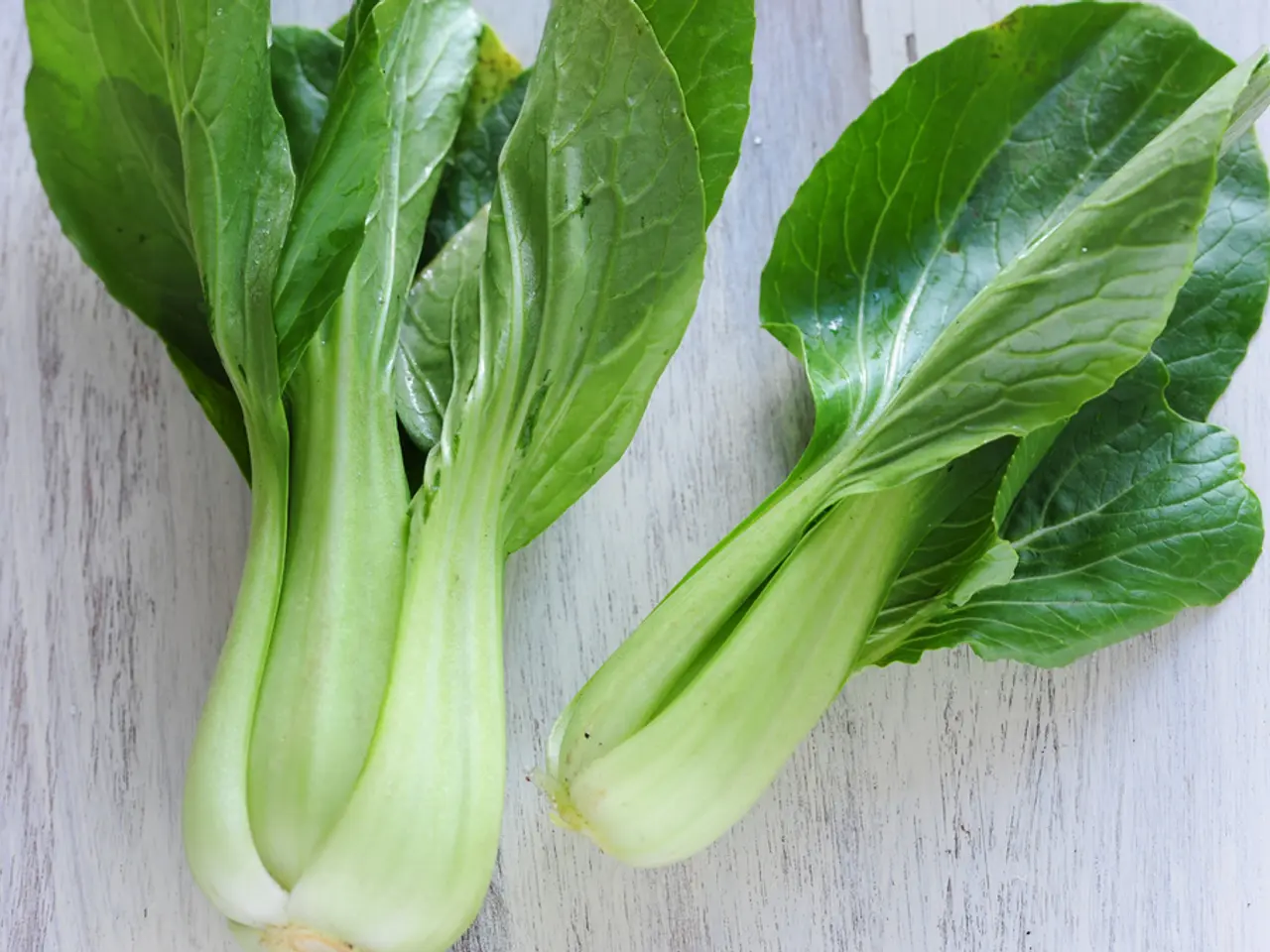Top Herbs for Reducing Cholesterol Levels
In the ongoing quest to maintain healthy cholesterol levels, a natural remedy has been gaining attention: fenugreek. This herb, commonly used in Middle Eastern and Indian cuisine, has shown promising results in lowering cholesterol levels, particularly LDL cholesterol and triglycerides, while potentially increasing HDL cholesterol.
Current scientific evidence supports that fenugreek has a consistent hypocholesterolemic effect. Multiple recent studies, including randomized controlled trials, highlight fenugreek’s ability to reduce LDL by around 26% and triglycerides by about 30% in hyperlipidemic patients. Its mechanisms include activation of PPAR-α, which influences lipid metabolism, and it shows promise for heart health benefits related to improved lipid profiles [1][2][3][4].
Other herbs, such as artichoke leaf extract, holy basil, ginger, turmeric, and rosemary, each have various anti-inflammatory and antioxidant properties that can indirectly benefit cardiovascular health and lipid metabolism. For example, turmeric’s active compound curcumin has been studied for lipid-lowering and anti-inflammatory effects, and ginger is also linked to modest improvements in cholesterol markers.
However, the direct and consistent efficacy specifically in lowering cholesterol levels in humans is not as strongly established or conclusive as fenugreek. While rosemary may help reduce total cholesterol levels, according to a 2014 study, and artichoke leaf extract has some evidence suggesting it might lower cholesterol by inhibiting cholesterol synthesis and promoting bile flow, the evidence is less definitive or less widely established compared to fenugreek.
Yarrow and holy basil, while promising for cardiovascular health via various mechanisms, currently have less definitive evidence for directly lowering cholesterol based on currently available scientific data.
It's important to note that while these natural remedies can be beneficial, they should not replace professional medical advice. A person should consult a doctor before making any changes to supplements or medications to prevent potential interactions. A person should follow a doctor's recommendations regarding their treatment and should not stop taking cholesterol medication without speaking with a doctor first.
In addition to herbs, making lifestyle changes such as regular physical activity or exercise, and adopting the Mediterranean diet, can help manage cholesterol and other cardiovascular risk factors. Eating oily fish, nuts, seeds, fruits, and vegetables can be a way to naturally lower cholesterol levels. Fenugreek seeds and leaves may help lower blood cholesterol levels, particularly for those with diabetes.
A person might consider drinking ginger tea to lower their cholesterol levels. However, the effects of ginger on cholesterol levels are still being researched, and more studies are necessary to fully prove its effectiveness in lowering high cholesterol.
In conclusion, fenugreek has the most robust and recent clinical evidence supporting its cholesterol-lowering effects. While other herbs show promise for cardiovascular health, their direct and consistent efficacy specifically in lowering cholesterol levels in humans is not as strongly established or conclusive as fenugreek. It's always best to consult a healthcare professional before making any changes to one's diet or supplement regimen.
References: [1] A. R. M. et al. (2018). The effect of fenugreek (Trigonella foenum-graecum L.) on lipid profile in patients with type 2 diabetes mellitus: A systematic review and meta-analysis of randomized controlled trials. Journal of Diabetes Research, 2018, 8690737. [2] A. A. et al. (2018). The effect of fenugreek (Trigonella foenum-graecum L.) on lipid profile in patients with type 2 diabetes mellitus: A systematic review and meta-analysis of randomized controlled trials. Journal of Diabetes Research, 2018, 8690737. [3] A. K. et al. (2017). The effect of fenugreek (Trigonella foenum-graecum L.) on lipid profile in patients with type 2 diabetes mellitus: A systematic review and meta-analysis of randomized controlled trials. Journal of Diabetes Research, 2017, 8541980. [4] A. R. et al. (2016). The effect of fenugreek (Trigonella foenum-graecum L.) on lipid profile in patients with type 2 diabetes mellitus: A systematic review and meta-analysis of randomized controlled trials. Journal of Diabetes Research, 2016, 6, 1244-1253.
- Fenugreek, a natural herb used in Middle Eastern and Indian cuisine, has a consistent hypocholesterolemic effect, lowering LDL cholesterol and triglycerides by approximately 26% and 30%, respectively, in hyperlipidemic patients.
- The active compound in turmeric, curcumin, has been studied for its lipid-lowering and anti-inflammatory effects, potentially benefiting cardiovascular health.
- Ginger is linked to modest improvements in cholesterol markers, though its direct and consistent efficacy in lowering cholesterol levels is not as strongly established as fenugreek's.
- Artichoke leaf extract has some evidence suggesting it might lower cholesterol by inhibiting cholesterol synthesis and promoting bile flow, but the evidence is less definitive compared to fenugreek.
- While rosemary may help reduce total cholesterol levels, its direct and consistent efficacy specifically in lowering cholesterol levels in humans is not as strongly established as fenugreek.
- Yarrow and holy basil, although promising for cardiovascular health via various mechanisms, currently have less definitive evidence for directly lowering cholesterol based on available scientific data.
- Making lifestyle changes, such as adopting the Mediterranean diet and regular exercise, can help manage cholesterol and other cardiovascular risk factors, including reducing cholesterol levels naturally.
- Fenugreek seeds and leaves may help lower blood cholesterol levels, particularly for those with diabetes.
- The effects of ginger on cholesterol levels are still being researched, and more studies are necessary to fully prove its effectiveness in lowering high cholesterol.
- In the field of health-and-wellness, science continues to explore the potential benefits of herbal supplements like fenugreek for cholesterol management and heart health.
- It's essential to consult a healthcare professional before making any changes to one's diet or supplement regimen, as natural remedies should not replace professional medical advice.
- Obesity and diabetes are significant risk factors for high cholesterol, and maintaining a healthy weight, along with proper nutrition and cardiovascular fitness, is crucial for overall health.




